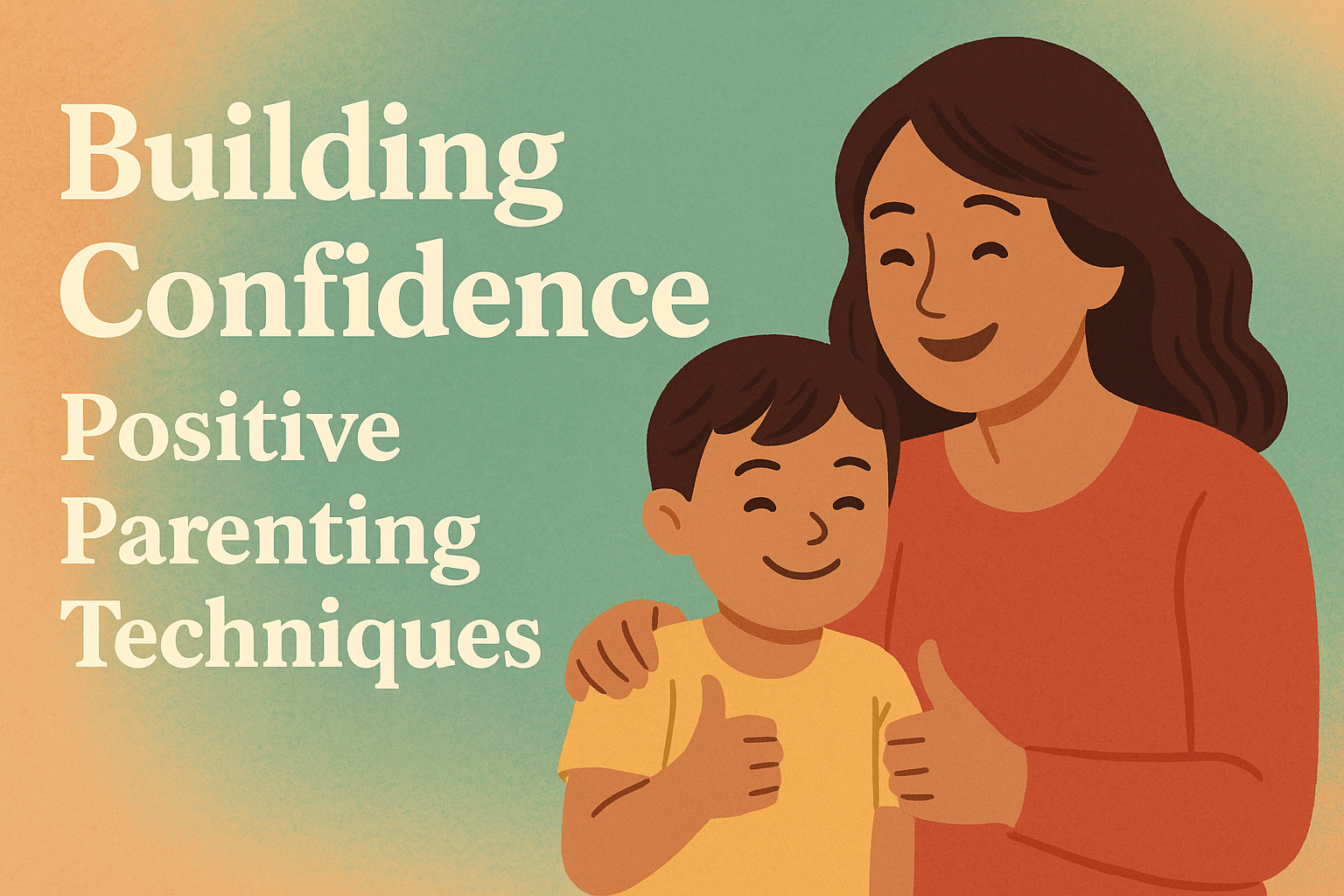Want to build child confidence and nurture strong child self-esteem? These evidence-based positive parenting tips will help your children feel capable, valued, and ready to tackle life’s challenges.
1. Offer Unconditional Love & Support
Children thrive when they know your love isn’t tied to performance. Make a habit of:
- Expressing Affection Daily: Hugs, high-fives, and “I love you” reinforce security.
- Listening Actively: Give full attention when they share thoughts or worries—validate their feelings without judgment.
- Praising Effort Over Outcome: Focus on hard work (“You practiced every day!”) rather than just results (“You got an A!”).
2. Set Realistic Expectations & Celebrate Small Wins
Kids feel capable when goals match their developmental stage. To reinforce success:
2.1 Break Tasks into Manageable Steps
If learning to tie shoes feels overwhelming, teach one loop at a time. Each mastered step builds confidence.
2.2 Use a “Success Chart”
- Create a simple sticker or checkmark chart for routines—making bed, brushing teeth, completing homework—then celebrate weekly milestones.
- Small, consistent rewards (extra story at bedtime, choosing dinner) motivate continued progress.
3. Encourage Independence & Decision-Making
Allowing children to make age-appropriate choices bolsters their sense of control and competence:
- Offer Limited Choices: “Would you like an apple or banana for snack?” gives autonomy without overwhelm.
- Assign Simple Responsibilities: Setting the table, feeding a pet, or picking out their clothes fosters ownership.
- Guide Rather Than Direct: Ask open-ended questions (“How do you want to organize your desk?”) to help them problem-solve.
4. Model Confident Behavior
Children learn by watching you. Demonstrate positive self-talk and resilience:
- Share Your Own Challenges: “I’m nervous to give this presentation, but I’ve practiced and I’ll do my best.”
- Use “Growth Mindset” Language: Replace “I can’t” with “I can’t—yet,” emphasizing learning over fixed ability.
- Show How to Handle Mistakes: When you slip up, apologize and explain how you’ll fix it: “I forgot to call Grandma. I’ll text her now.”
5. Teach Problem-Solving & Coping Skills
Equipping children with strategies to handle frustration and setbacks fosters resilience:
5.1 Identify Feelings
Use tools like “feeling charts” or mood meters. Naming emotions (“I feel angry”) helps children process them constructively.
5.2 Brainstorm Solutions Together
- Define the Problem: “Your blocks keep falling—what could help?”
- Generate Options: Suggest ideas (“Try stacking on a flat board, or build a wider base”).
- Test & Reflect: Let your child try their solution, then discuss what worked and what to try next time.
6. Provide Authentic Praise & Feedback
Effective praise is specific, sincere, and focuses on qualities your child can control:
- Acknowledge Character Strengths: “I admire how you kept trying even when it was hard.”
- Highlight Effort & Progress: “You’ve practiced that piano piece for three days—you’re improving every time.”
- Avoid Overpraising: Empty praise (“Good job!”) can feel insincere. Always tie compliments to concrete behaviors.
7. Foster a Safe Environment for Risk-Taking
Children grow when they step outside their comfort zones. Create a supportive atmosphere by:
- Encouraging New Activities: Sign up for beginner sports or art classes where mistakes are expected.
- Remaining Calm During Setbacks: If your child fails or falls, reassure them that recovery is part of learning.
- Sharing Stories of Overcoming Fear: Talk about times you tried something new—how you felt and what you learned.
8. Conclusion & Next Steps
Building confidence doesn’t happen overnight—it’s the result of consistent positive parenting tips, genuine support, and opportunities to succeed. Start today by praising effort, offering choices, and modeling resilience. Over time, these practices will build child confidence and nurture lasting child self-esteem, helping your child thrive both now and in the future.
If you found these techniques helpful, please share your experiences in the comments, and subscribe for more parenting guidance!



